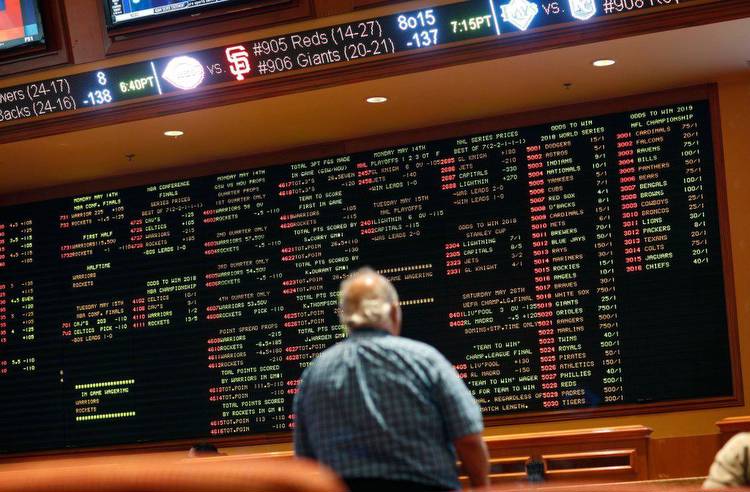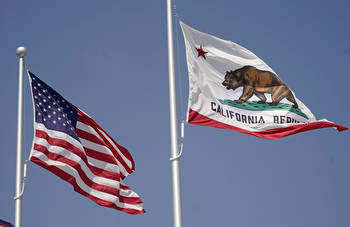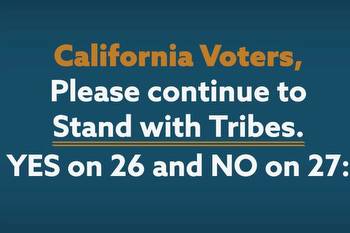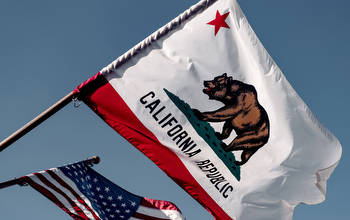Tribal gaming association opposes California’s latest sports betting ballot initiatives

After last year’s failure of two ballot propositions relating to the expansion of sports betting, two new proposed initiatives were filed late last month. On Thursday, the California Nations Indian Gaming Association unanimously voted 18-0 to oppose the two initiatives during a meeting.
The new initiatives come a year after California voters opted against more commercial gaming and legalization of sports wagering in the state. There was almost $600 million spent between the two failed bills, with neither ballot getting over 33% of their votes in the 2022 election.
The new initiatives came with a fresh twist, one would prohibit sports wagering by any operator other than by California Indian gaming tribe, essentially putting tribes in charge of all sports wagering in the state. The other initiative would have the governor negotiate a “gaming compact” with tribes for online and in-person betting.
Prior to their public introduction, both 2022 propositions, Propositions 26 and 27, proponents spoke with tribal groups for logistics and to build a relationship. The two new initiatives did not do that. California Nations Indian Gaming Association stated that while they’re not completely opposed to the idea, they feel as if the new initiatives were rushed and that voters aren’t ready to vote on the matter so soon after a resounding answer in the 2022 elections.
The association is a nonprofit organization that is composed of 52 federally recognized tribal governments and associate members who are dedicated to the tribal government gaming industry, CNIGA is the largest such organization in California. Both Bear River Casino Resort and Blue Lake Casino and Hotel are CNIGA members.
“Everybody has been insulted. Every tribal leader I have talked to says, ‘No, it’s not going to move.’ But I do believe this begins the conversation for 2026,” conference chairman of the Indian Gaming Association Victor Rocha said on his webinar “The New Normal.” “Whether these guys are involved, I can’t say, but if they want to spend half a billion dollars on our behalf, that could change things. But I really don’t see a path for this.”
The two new initiatives were submitted by Kasey Thomspon and then were signed by Ryan Tyler Walz. Thompson is a co-founder of an online gambling website, Pala Interactive. Rocha spoke out against the two on Twitter in October.
“This thing is so dead. Kasey Thompson & Ryan Tyler Walz are morons. You heard it here first,” Rocha tweeted after the initiatives were filed late last month.
Rocha added more tweets about the initiative this week, calling the sponsor’s “poker bros” and deeming their attempt as “deader than yesterday.”
Gaming revenue in California is a multi-billion dollar industry, according to the American Gaming Association. The casino gaming industry in California had 8.4 billion in gross revenue in the year of 2016. The large dollar amounts lead to frequent attempts to tap into that market, but ulterior motives have rubbed the California Nations Indian Gaming Association chairmen the wrong way.
“It goes back to holding tribes’ feet to the fire, as you are either going to get on board with this or we’re going to do it for you. That’s never going to work for us,” said CNIGA chairman James Siva.
Along with the fiscal burden of financing these initiatives, the groups will need over 800,000 signatures by the end of the summer in order to get the bills to appear in the 2024 election.
Casinos, along with horse racing, are the only legal ways to bet legally in California. The Humboldt County Fair said that the initiatives wouldn’t affect the fair or horse races.
CNIGA released a statement voicing their opposition to the bills where Siva spoke out harshly against the initiatives, while even calling on the sponsors to drop the initiative.
“The entire effort surrounding these initiatives was handled abhorrently by the initiative sponsors,” said Siva. “It is hard not to be offended when listening to these individuals speak. This is another example of outside influences trying to divide and conquer Indian tribes.”



































